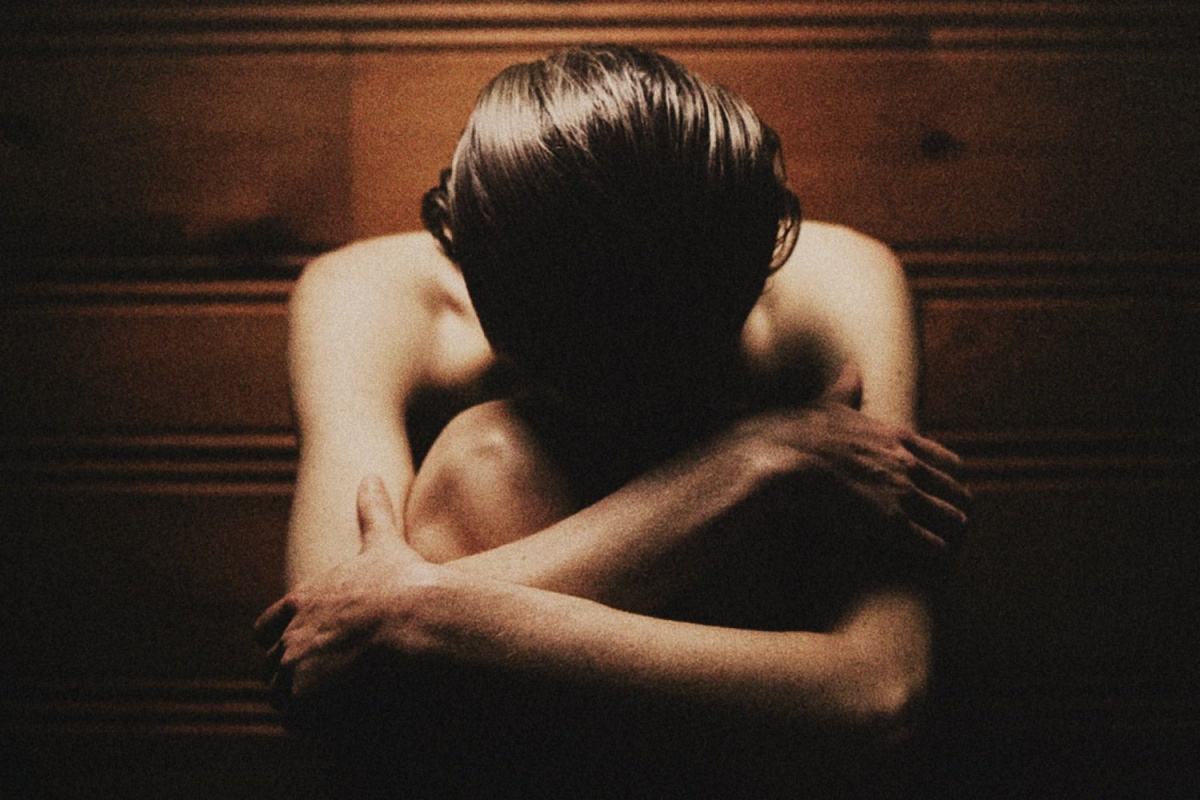The Oxbow Cure, the sophomore film by Calvin Thomas and Yonah Lewis (known as C&Y), is about Lena (Claudia Dey), a woman who retreats to a cabin in the middle of winter. She seeks solitude in the cold, desolate landscape in order to come to terms with a debilitating illness. The Oxbow Cure focuses less on biological effects and more on Lena’s self-discovery, and the sinister inertia of her surroundings. The film is a brooding, contemplative character study that gracefully reveals the ominous nature of loneliness.
GFW: You were influenced by Karl-Arne Bergman’s diagnosis of Ankylosing Spondylitis inIngmar Bergman Makes a Movie. What was it about the illness that worked for your film?
Yonah Lewis: We instantly loved the way Karl-Arne was talking about the inevitability of it, about having to come to terms with the disease, that there was nothing you can change. It doesn’t kill you, you aren’t done but your life is changed in a way that is forever altered.
How did you explore Lena as a character with lead actress Claudia Dey?
Yonah: I know Claudia spent a lot of time looking at forums and eventually we worked some of that into the film.
Calvin Thomas: We chose to show it very early on in [Lena’s] diagnosis. We tried not to do anything too obvious or too overblown that it would feel like she’s fully breaking down. She breaks down more emotionally and mentally than physically.
Yonah: There is something very visually interesting about the disease too. The way that it twists the body and forces you into things. And that certainly hoped with a number of elements we were already working with in the script.
What was the shooting experience like?
Calvin: This was the first time that we worked with a little more of a crew. It was still very small, only 10 or 11 of us. They were all incredibly skilled and dedicated to the film. We couldn’t have asked for more. It was nice: we lived together, we woke up, at the end of the day we hung out, and figured out what we were shooting the next day. There was no outside party that was putting pressure on us. We all putting pressure on ourselves to find better shots or better light, or whatever our jobs were. We were trying to best ourselves. That kind of filmmaking is the nicest.
Yonah: Lev [Lewis] was editing the whole time as we went, so we were able to track what we were doing. We had a rough cut by the time we left.
Was that your first time doing that? It sounds like a good idea.
Yonah: It’s simultaneously terrific and terrible. The rough cut is the worst stage of a film. You finally see it all together. When you’re seeing rushes [the shots] seems wonderful, and have potential. The second it cuts together you see all the problems. Which is great because you can figure out what you need to do better. But at the same time you’re depressed about what you shot before.
Calvin: It’s really frustrating when we’re there getting a shot, and we climb a mountain to get a shot, and Lev takes literally two seconds and says “This is crap.”
What’s next for you two?
Calvin: We’re shooting a new film over a long period of time. The production is a very small crew. This is a film we’re making with Lev, we’re all sharing credits…
What can you tell me about it?
Calvin: It’s about seven 17-year-old dance students who all failed their last year of high school and decide to join the Canadian Armed Forces.
That’s awesome, it seems like a departure from The Oxbow Cure.
Calvin: I don’t think any of the films feel like departures, but we get bored of something and we do something else. We’re not trying to refine a certain style, we’re more interested in experimenting with the process of making films out of a very small level and just whatever we get excited by we jump on.

